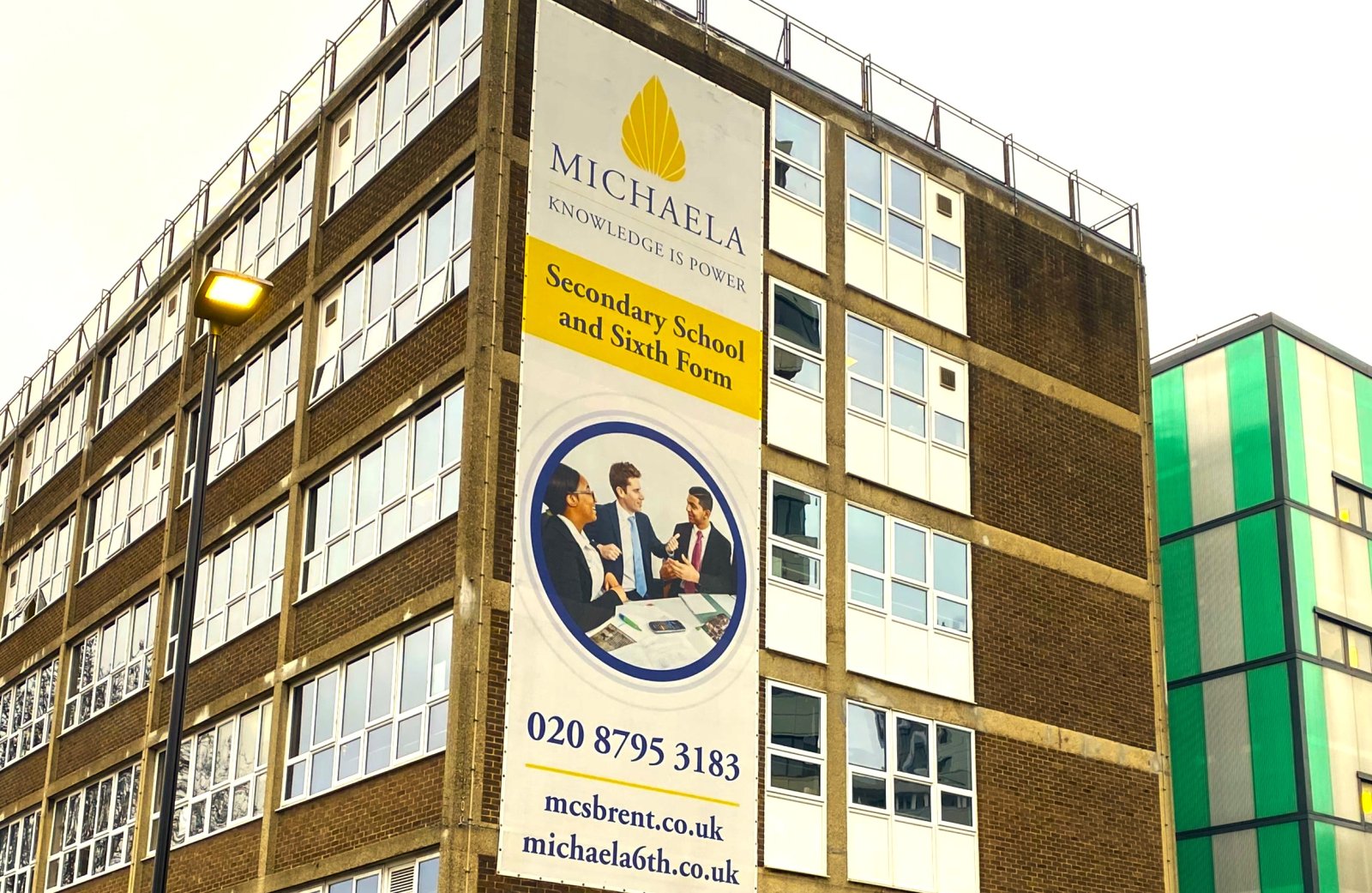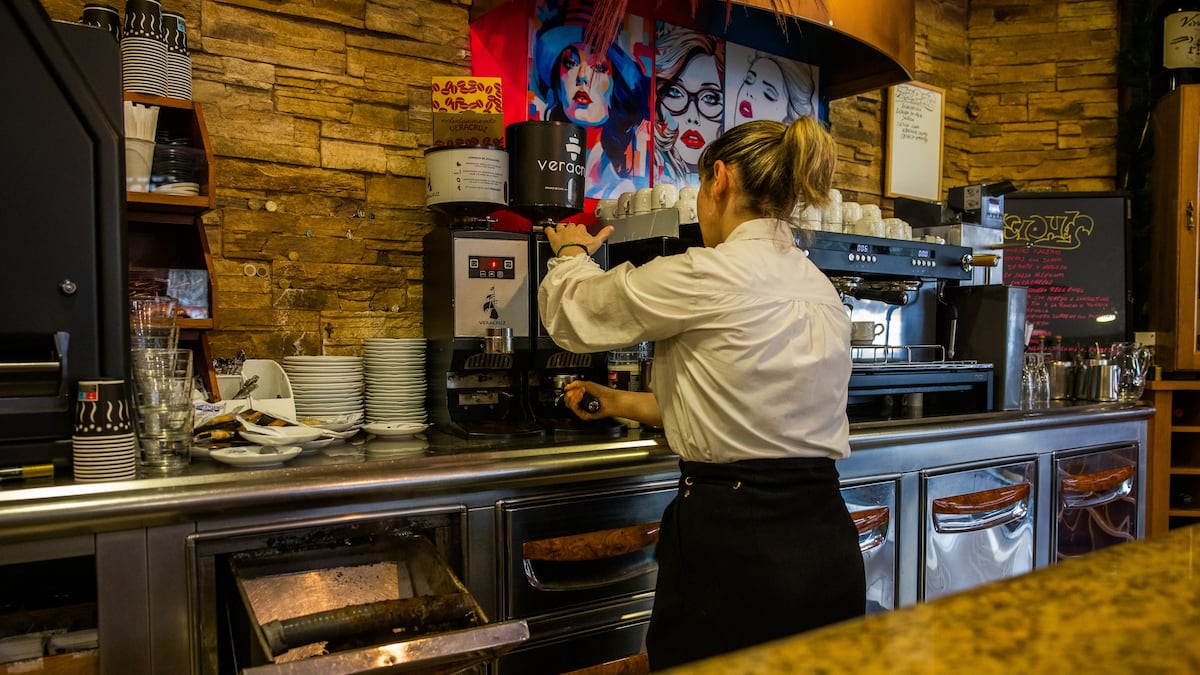When Islamists tried to bully Michaela Community School, the school refused to back down. Other schools have not been so successful in challenging religious intimidation. Megan Manson explores what made Michaela different.
A diverse, secular school becomes concerned about the interference of religion in school life. It therefore decides to confront that religion. The result? Protests, intimidation, and death threats. Bereft of support from the authorities, staff are left fearing for their lives and the safety of their pupils.
It’s a story we’ve heard again and again over the past decade. And one of the most high-profile is Michaela Community School in Wembley. Michaela is unable to provide a room for Islamic ritual prayer, so pupils began praying in the schoolyard, which sparked concerns about division and bullying among the children. It also led to accusations of ‘disrespecting’ Islam from campaigners outside the school, which grew increasingly nasty. The school was subjected to threatening communications, horrific racial abuse, and eventually a bomb scare.
But Michaela’s story has an important difference: the school refused to capitulate. Instead, it doubled down. Identifying the schoolyard prayers as the source of the problem, it decided to prohibit them.
The school’s policy has been vindicated in the High Court this week. One of the pupils at the centre of the case, known as ‘TTT’, took Michaela to court because she claimed the policy unlawfully violated her freedom of religion or belief as well as equality law. But the court sided with the school: concerns regarding the cohesion between pupils of different backgrounds, the risk of bullying, and the need to uphold Michaela’s secular, inclusive ethos outweighed the disadvantage to the pupil.
But the school’s decision to stand by its policy wasn’t merely vindicated by the courts. It was also vindicated by the fact that it worked.
On the same day police swept Michaela’s premises for explosives following the bomb scare, the school rolled out the prohibition on prayer rituals. Fearing repercussions, the school engaged security guards. Their fears were well-founded. Days later, a brick was thrown through the window at one teacher’s home, and glass bottles were smashed in the schoolyard.
But then it was over. In the words of headteacher Katharine Birbalsingh, when the new term began, the school “returned to the peaceful and successfully integrated community that it had been prior to the events of the previous term”.
She said none of the children “sought to conduct prayer rituals on the School’s premises”, the “mutual trust between teachers and pupils returned”, and the “resentment and anger we had discerned before the Easter holidays had disappeared”.
This, perhaps, is an even more important achievement than Michaela’s victory in court. By refusing to be cowed by religious bullies, and by standing by its staff, pupils and ethos, the school succeeded in restoring peace and normality – without sacrificing its secular ideals.
It’s a far cry from previous cases we’ve seen, where a less robust approach to protecting school principles and personnel has had a very different outcome.
Take St. Stephen’s Primary School in east London, which like Michaela has an ‘Outstanding’ Ofsted rating and (despite its name) a secular ethos. In 2018, the school’s leadership team and governors decided to clarify that hijabs should not be worn by Early Years and Key Stage 1 girls because they hindered their movement and did not help children “integrate into society”. The school also advised that children should not fast for Ramadan while at school due to health concerns.
As a result, the school became the subject of an intimidation campaign. It was sent hundreds of emails a day, many so abusive and threatening that they required police involvement.
The school decided to reverse the policies on the hijab and Ramadan fasting. The chair of governors at St Stephen’s resigned, saying that the school’s decision to ban hijabs for young children and fasting was “common sense” and the Department for Education (DfE) should “step up” and take the issue out of the hands of governors and the headteacher.
But the DfE had effectively left the school to fend for itself, saying: “It is a matter for individual schools to decide how to accommodate children observing Ramadan, and to set uniform policies. We issue clear guidance on uniform and to help schools understand their legal duties under the Equality Act”.
Or take the case of the dozen or so schools in Birmingham which, between 2014 and 2019, were forced by Islamist protestors to abandon or significantly alter lessons that taught tolerance of same-sex relationships. One of the key schools targeted by protestors was another outstanding secular school, Parkfield Community School, whose assistant head quit after he was subjected to homophobic abuse and death threats. Again, the DfE failed to provide meaningful support.
Since then, these kinds of protests have spread to other parts of the UK. Recent victims include Plashet School in London, which last year terminated an equalities club following threatening complaints, again prompted by an Islamic group.
And then there’s the particularly awful case of Batley Grammar School in 2021. After a teacher showed a drawing of Muhammad as part of a religious studies (RS) lesson, the school received a single threatening phone call. This prompted the school to issue an apology to the parents of every pupil.
Rather than putting out the fire, the apology sparked an inferno. After protestors amassed outside the school gates and ‘doxxed’ the RS teacher by sharing his personal details online, the school repeated its apologies in a press conference and suspended the teacher.
Contrast with the behaviour of Michaela. When the pupil ‘TTT’ racially abused a black teacher who challenged her for bringing a prayer mat to the schoolyard, the school stood by the teacher and suspended the pupil for her “extreme rudeness”.
Michaela protected its people. Batley Grammar threw its teacher to the wolves.
And look at the outcomes. By refusing to give in to their demands, Michaela drove the extremists away. But Batley Grammar? Their RS teacher, and his young family, were forced to flee not only the school, but also their home. They’re still in hiding.
The fact that the bullies won at Batley no doubt spurred on future incidents, like the public apology a mother was forced to make when her son got death threats for allegedly scuffing a Quran at Kettlethorpe High School in Wakefield last year.
What makes Michaela different? Why did it stand firm against religious intimidation when other schools crumbled?
Certainly Michaela’s leadership is part of the answer. Birbalsingh is no ordinary headteacher. She is uniquely confident in her school’s unusual ethos and methodology, despite the criticism they frequently attract. There are many educators who disagree with her school’s ultra-strict, authoritarian, conservative way of doing things. But most will agree: there are few headteachers with a public profile as prominent as that of Katharine Birbalsingh.
It is this public profile which gives Birbalsingh and Michaela protection which other schools just don’t have. Birbalsingh’s embracing of what she calls ‘small c conservativism’, combined with her unapologetically outspoken manner and her school’s outstanding performance, have attracted friends in high places. She is a favourite among Conservative politicians – hence her repeated appearances at conservative political conferences.
Having powerful allies is no doubt part of the reason Birbalsingh can effectively resist challenges to her school’s culture. But most school leaders are less well connected, less political, less vocal and less willing to rock the boat. This is a reality which must be acknowledged if we are to equip our schools with what they need to tackle religious intimidation and extremism.
There are two lessons to draw from Michaela. One is that giving in to bullies doesn’t work. It merely encourages them to step up the bullying. Michaela succeeded where others failed because it did not apologise for imposing what it saw as reasonable and necessary restrictions on religion for the sake of the whole school community. This not only protects Michaela in the long run, but other schools too. The Michaela case will hopefully cause activists to think twice before picking on other schools.
And the second lesson is that politicians, ministers and other authorities must support all headteachers, not just those who are politically aligned with them. Batley Grammar may have left its RS teacher out in the cold partly because the leadership felt left out in the cold. Had Batley Grammar’s leadership felt as confident, assured, and supported as Michaela, it might have been empowered to stand up for its teaching methods and its teachers.
Birbalsingh called this week’s ruling a “victory for all schools”. This will only be true if our politicians and authorities recognise the need to support school leaders in upholding an inclusive, secular ethos against incursions from religious activists. And to do that, politicians must themselves be bold, and make it clear that when religion interferes with schools and the lives of teachers and families, it will be challenged.





